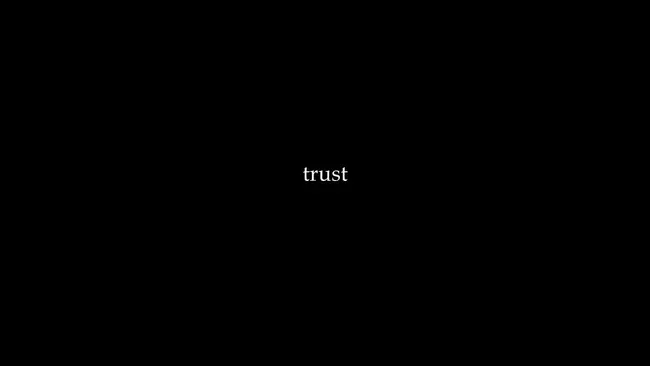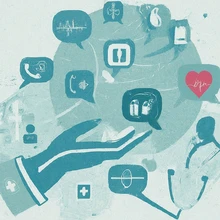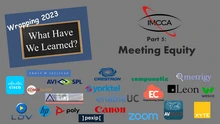
(The following opinions and observations are purely my own. They belong to no employer or organization. Feel free to read if you want to know what my personal opinions are.)
Business life will never be the same. Trust is irrevocably broken.
I have already written a number of articles during the pandemic explaining that it’s difficult to realize how profound a change you’re living through while you’re living through it. It often takes some time and distance to really grasp how big a thing has happened.
After discussing our current reality with other professionals at the many conferences and events I’ve recently attended, and thinking about it for a while, I was able to disconnect from my day-to-day perceptions and take a thirty-thousand foot view of life, work, work-life, and humanity. That exercise helped me see that here in the US – and likely in most western cultures – the trust that existed between employers and employees in broken, and it will likely never be repaired. It is the proverbial Brave New World.
Let’s step-back and review how we got here.
A global pandemic forced most enterprise employees to 'work from home.'
Most employees discovered to their surprise that they liked the model and were happier and more productive.
Most employers discovered that their businesses didn’t collapse, but rather thrived when knowledge workers were working mostly remotely. (Factories however could not operate remotely, and this led to the supply chain crisis that we’re all still living through.)
As remote employees realized their ability to work remotely and their true value, and at the same time some in-person jobs became too dangerous, we experienced 'the great resignation' – essentially a resetting of what was important to individual employees, and those same, employees flexing their newfound strength.
Many enterprise executives were uncomfortable with the new realities of remote and hybrid working. They claimed it hurt ‘company culture.’ Some have demanded that employees return to the office, believing that if employees are out of sight then they are not performing adequately.
Multiple attempts to have those knowledge workers ‘return to the office’ have failed. While some employees were relieved to be back at the office again, most rebelled against leaving a far superior work-life balance.
Increased inflation and continued supply-chain strains put pressure on enterprises to cut costs.
Many enterprises chose to cut staff as a response to the economic outlook. Most of these activities were done without sense or compassion. Star employees with decades of service were cut by email in the middle of the night. People on medical or maternity leave were cut. Employees were cut without their managers knowing or having any input.
Most of the firms that have experienced these RIFs (reductions in force) and/or layoffs are NOT struggling. (Again, most, not all.) They are profitable, paying executives significant compensation, and still investing millions if not billions in new technology and projects. They are simply resetting the size of their organizations in a way that will please Wall Street investors.
Interestingly, all available data shows that layoffs and RIFs always cost firms more money in the long run. That being the case, why are so many firms doing it? There are a few reasons:
CEOs / company boards generally don’t want to take responsibility for their bad decisions. It’s easier to cut staff then replace the people that made the bad calls.
Wall Street investors love layoffs. When a company announces RIFs their stock generally goes up.
There is a domino effect at play. As firms cut staff they have less need for products and services, which then incents those product and service providers to cut staff.
Many executives are trying to rebalance the strength and power I mentioned above.
The cynical view of all these layoffs can be paraphrased as, ‘So you grunts think you can work from home and slack-off all day and then just resign? Ha, we’ll show you who really has the power.’
The long-term problem with all of this is that trust has been broken. Irrevocably broken. It’s now a brave new world.
Yes, perhaps in the short term the power has shifted back to some employers. But at what cost?
Some of the firms that had tremendously loyal and invested cultures – ones with proud and cute internal names – cultures that they were very proud of – have dropped a bomb on them, obliterating them. Ironically and hypocritically, many of these are the very same firms that decried that remote working would prevent them from nurturing their desired company culture. Apparently, these firms are only concerned about company culture when the argument meets their tacit desires to regain power from employees. They have no qualms about destroying these valuable and beloved cultures when it meets their desires.
The employees that remain at these firms will never see them the same way. Knowing one can be cut-off from teammates and company systems in the middle of the night with no notice, warning or explanation has a chilling and devastating effect not only on those employees leaving but also on those employees staying. Trust is broken. ‘Company culture’ is seen as the hypocrisy that it is.
I can’t begin to tell you how many emails and posts I’ve seen and conversations I’ve had with employees and ex-employees who explain that they will never again allow misplaced loyalty to affect their career choices. Loyalty as a factor in a choice of employer is just as destroyed as the culture factor.
The inevitable results of all of this will be a trajectory that moves us much further toward a nearly complete gig economy. Employees who have valuable ideas will prefer to sell them to the highest bidder rather than sharing them with employers. People who can become entrepreneurs will do so. NDAs and non-compete clauses will slowly dissolve as potential employees will no longer trust firms. (Already courts and governments are beginning to dissolve these in limited but growing circumstances.) Having a great manager that values your contributions and speaks-up to defend you against staff cutbacks is now quite visibly not even a factor in company decisions.
As I said, trust has been broken. Irrevocably broken. It’s now a brave new world.
In the novel Brave New World, Aldous Huxley wrote, “... Most men and women will grow up to love their servitude and will never dream of revolution.” Congratulations to today's company leaders (the equivalent of his ‘Controller’) for showing most men and women just the opposite – that there in fact is a life past ingesting the Soma, as the pandemic and deceptive employers have allowed everyone to learn what we have been “conditioned to believe” about employers and company culture is actually no longer true.












